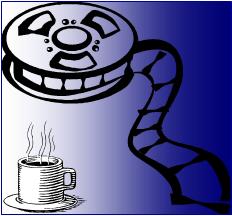

|
 |
 |
Moneyball
|
Please go to the new Coffee Coaster site implemented more gracefully in Wordpress. Full conversion by 9/12. This page: http://brianrwright.com/CoffeeCoasterBlog/?p=957 |
Peter Brand: Billy, this is Chad Bradford. He's a relief pitcher. He is one of the most undervalued players in baseball. His defect is that he throws funny. Nobody in the big leagues cares about him because he looks funny. This guy could be not just the best pitcher in our bullpen, but one of the most effective relief pitchers in all of baseball. This guy should cost $3 million a year. We can get him for $237,000.
Let's come right out and state what will be obvious after watching the first few scenes of Moneyball: it's a guy thing. [Robin Penn Wright may appear second in the credits, but as the protagonist's ex-wife she occupies about a frame; you're not sure it's her and then she's off camera.] More specifically, it's a jock flick. Even more specifically, it's a unique and thought-provoking statement about America's mythic sport: baseball. It's also a real life story about the general manager of the Oakland Athletics, Billy Beane (Brad Pitt).
We're introduced to the problem as the Oakland A's—with three major studs (first baseman Jason Giambi, outfielder Johnny Damon, and pitcher Jason Isringhausen)—lose 3-2 (three games to two games) to the New York Yankees in the American League Divisional Series. Problem is: the A's are in a small baseball market with a team payroll of ~$39 million, where the Yankees are a dominant market with a payroll of nearly $100 million more than the A's. Beane, who hates losing more than the average guy, appeals to his owner to no avail: "We're not increasing payroll. Do better with the money you have." Then the A's lose the three studs!
Hey, c'est la vie. Billy leaves the meeting frustrated but resolved to solve the problem of how to compete with big market teams while working for a small market organization with tight-fisted ownership. In a meeting with the collective front office of the Cleveland Indians, discussing possible trades, Beane notices that the GM, before making a decision, always looks for confirmation to an underling sitting in the back of the room. Unsuccessful in his negotiations, natural-leader Beane makes a point to chat with the subordinate out of sight from the Indian hierarchy.
The man, Peter Brand (Jonah Hill), is a pure geek-kid just out of an Ivy League school, majoring in economics. Beane gets Brand to confess why the manager considers Brand so authoritative: it's because Brand has a good track record, even in the short time he's been around, and a steel-trap, photographic memory that knows all the statistics about every player being considered. More important, Brand knows all the significant statistics, as derived by the famous citizen-statistician Bill James. These James' stats are compounded from the normal data recorded in the box scores for any given player and designed to show a correlation with a team winning.[1]
The upshot for Beane is that Brand may have the secret, the solution to the dilemma facing his Oakland A's. So Billy offers Peter a job on the spot. Peter is happy to take the offer, because, as he notes, virtually everyone in the Indians' organization has no clue regarding the value of any given player. They use Brand but they otherwise stay wedded to their old superstitions. Turns out Beane's organization is no different, and Billy, who has decided to take the plunge with the new methodology, faces resistance all down the line.
So that's really the plot setup of the movie, and we're led into the historic 2002 Oakland A's season, with its downs and then ups, and a coda. The intermixing of the actor drama with the actual footage of the A's on the field that year is done skillfully. Despite not achieving all his objectives, Beane became a highly sought-after force by other teams for getting the most bang for the buck. Would he take an offer? It all depends on his internal motivation and relationships. Bringing these out is the accomplishment of the writers, director, and Brad Pitt, the actor. The Academy thought well enough of him to accord him a nomination.
The subtle essence of the movie is provided first by the character work of Billy Beane, how he handles the adversity while trying to maintain a real relationship with his daughter and not do anything rash to further alienate his ex-wife Sharon... who can make his daughter-time far more difficult. Another key quality in the Beane internal drama is his past, as a ballplayer, amounting to immense youthful promise unfulfilled. You see the demons, but you also see a mature man of confidence, even heroism, dealing nonaddictively with his past, as well as all the other struggles of an elevated career in an extremely tough position.
It's inspiring to watch Pitt proceed so effortlessly, yet feelingly. Also, whether you're a sports person or not, you come away with an appreciation of the business end of America's pastime. Then there's the philosophical issue of whether the Bill James approach to the game is a betrayal of its human qualities or homage to the best within it. A very fair and open and entertaining field of play.
[1] An example of a Bill James statistic for a player, though I forget the actual name of the stat, is "the number of runs a team would score if every player were he." Years ago, I was told by Bill Bradford of Liberty Magazine, a huge fan of James, that Babe Ruth had the highest value in this 'equivalent runs' category... by far. Which, of course, brings up a host of questions and analyses.
###
2012 April 11
Copyright © Brian Wright | The Coffee Coaster™
Moneyball | Oakland A's | Baseball | Bill James
| Brad Pitt | Jonah Hill

| Publish Fee: $25 Donation |  |
|||
| |
|
Main | Columns | Movie Reviews | Book Reviews | Articles | Guest |